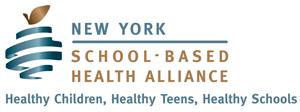In January, the Bassett Research Institute (BRI) started an investigation into the use of TeleMedicine within the Bassett Healthcare Network. This project, funded by a $50,000 grant from the National Institute for Health Care Management (NIHCM) Foundation, builds off of work BRI started in 2021.
“When COVID hit, Bassett had to move all our Living Well programs online,” explains Kristin Pullyblank, nurse scientist, at Bassett’s Center for Rural Community Health, a part of BRI. “Then we saw a sudden shift in the participants’ demographics — they tended to be younger and more educated. That sets off alarm bells for us. Are we leaving those other people behind?”
Last year, Pullyblank and Wendy Brunner, director of the Center for Rural Community Health, surveyed hundreds of patients to learn more. They asked about their experiences with TeleHealth, as well as about related issues like home internet access and the challenges they faced during the pandemic.
The results gave them a rough outline of what they hope to learn, but also raised more questions for investigation. For example, their survey data found that over 40 percent of participants reported that it was difficult to pay for essentials like food, housing, or medicine during the pandemic. That seems significant — but why?
“How does this financial hardship connect with TeleHealth?” wonders Brunner.
“Is it a matter of not being able to afford the technology? Or maybe people who are emotionally drained by financial stress don’t have energy to figure out how to set up a TeleHealth visit in their home. Or maybe they are unrelated.”
The NIHCM grant allows them to dig deeper to hopefully tease out some of these whys. “With the grant, we’re following up the survey with key informant interviews,” says Brunner. “We are following up with patients who gave surprising answers and saying: ‘Tell us more about this answer. What does it really mean?'”
These concerns are not unique to Bassett. TeleMedicine has grown common in many health systems during the pandemic. Researchers throughout the country are concerned with making sure patients don’t fall through the cracks. As a result, besides helping Bassett better serve its patients, BRI will be contributing to this growing body of research.
“NIHCM is interested in policy and practice implications,” says Pullyblank. “We hope, for the good of our patients, that our work has a null finding — that these differences in TeleHealth use are just preferences and no one is being underserved. But if we find that age, or broadband access, or finances, or concerns about data security, or any number of other factors is impacting access, it could have large implications for us and for rural health care as a whole.”
“We are really honored to be selected and to get this grant,” says Brunner.
“This is what’s really satisfying about doing research. You observe a pattern and start to wonder what caused it. That turns into an idea about how to learn more. Then you find others at a funding agency who are just as interested. In the end you satisfy your curiosity, partner with others, and solve problems.”
To continue reading, CLICK HERE.
June 7, 2022
